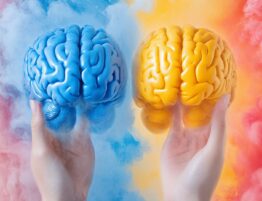In the modern world, we have to live a fast-paced life. It is crucial to stay mindful. Meditation practices will help with this. They have a significant impact on the mind and body. This is deeply rooted in ancient traditions. Modern healthcare increasingly recognizes these techniques for their therapeutic benefits. They are mainly used in managing neurological conditions. Mindfulness helps individuals disengage from stress and negativity by focusing attention on thought patterns and cultivating present-moment awareness. Meditation complements this by promoting relaxation and enhancing overall mental clarity. It can be critical for those facing chronic neurological challenges.
Research continues to unveil the connection between these practices and improved brain health. They may help counteract neurodegeneration’s effects and reduce inflammation. These practices also strengthen neural connections. Mindfulness and meditation offer powerful, non-invasive tools for people with neurological conditions. They support emotional resilience and mental well-being. We will explore their role in managing neurological health. These ancient practices provide modern solutions. We will help you enhance your brain function and quality of life.
The Connection Between Mindfulness and Neurological Health
Mindfulness profoundly impacts the brain’s structure and function, making it valuable for brain health. Research shows that mindfulness promotes neuroplasticity. A brain can reorganize itself by forming new neural connections. This adaptability is essential for recovering from neurological conditions. It helps the brain compensate for damaged areas by creating alternative pathways.
Studies also highlight stress reduction as a crucial benefit of mindfulness. People must focus on the present moment and let go of intrusive thoughts. They practice mindfulness and experience lower cortisol levels. This is the body’s primary stress hormone. Reducing stress eases symptoms of anxiety and depression. It also helps prevent the worsening of neurological conditions. They are sensitive to stress, such as multiple sclerosis, epilepsy, and migraines.
The research underscores several benefits of mindfulness. Let’s explore how meditation affects the brain:
- Improved Neuroplasticity: Mindfulness aids brain recovery and adaptability in conditions, such as strokes and traumatic brain injury.
- Enhanced Mood Regulation: This helps individuals manage anxiety and depression. These conditions are often associated with neurological conditions.
- Increases Gray Matter Density: Studies show that meditation can increase this in brain areas. They are linked to stress and emotional regulation. Meditation supports overall mental health.
Mindfulness and meditation are a complementary approach to medical treatment. They provide holistic support to traditional therapies. It improves overall outcomes for those with neurological conditions. There is a growing scientific backing. Mindfulness for brain health is becoming an integral part of neurological care plans. It offers natural, supportive pathways to treating and resilience.
Benefits of Meditation for the Nervous System
The advantages of meditation for the nervous system (NS) are profound. They offer numerous ways to improve mental and physical well-being. Meditation activates the body’s relaxation response. It calms the mind and focuses inward. Meditation helps to counteract the “fight or flight” state that often accompanies stress. This relaxation response is essential for reducing the activation of stress hormones. It, in turn, supports healthier NS function and promotes emotional stability.
Meditation contributes to emotional regulation. It enables individuals to manage stress and negative emotions effectively. This helps prevent the overstimulation of the NS. It can lead to chronic anxiety and depression.
There are several specific benefits of meditation for the nervous system. They include:
- Reduced Inflammation: This is associated with chronic neurological disorders. Stress-relieving practices decrease inflammation-triggering hormones.
- Improved Blood Flow to the Brain: This supports mental clarity, focus, and cognitive resilience. This is especially beneficial for migraines and neurodegenerative diseases.
- The Balanced Autonomic NS: This advantage helps the body transition smoothly. This is between rest and active states. This balance promotes long-term NS health.
These benefits of meditation for the nervous system are significant. With its natural, non-invasive approach, they are increasingly recognized as a powerful tool. It helps enhance the NS’s functioning and overall well-being.
Stress Management Through Meditation
Reducing stress through meditation is a powerful approach. This is especially beneficial for individuals with neurological conditions. Meditation supports mental well-being by promoting relaxation and resilience against stress. It profoundly affects the brain and body. Here’s how stress management throughout meditation:
- Reduces Cortisol Levels: Meditation helps lower cortisol, the “stress hormone.” It can impair memory, focus, and emotional stability. This happens when cortisol is present in high amounts over time.
- Enhances Brain Plasticity: Regular meditation encourages neuroplasticity. It allows the brain to adapt better to stress and recover more effectively from its effects.
- Activates Parasympathetic NS: This “rest and digest” system is triggered during meditation. It helps to calm the body and lower heart rate. Meditation reduces the physical symptoms of stress.
Overall, stress management through meditation can significantly benefit neurological health. It alleviates stress’s harmful effects on the brain.
Mindfulness for Brain Health: Practical Applications
Awareness of brain health is an effective way to enhance mental clarity. It also reduces stress and improves cognitive function. Individuals can support overall brain health by integrating mindfulness exercises into daily routines. They are especially beneficial for those with neurological disorders. There are practical tips for mindfulness for brain health:
- Start with Short, Daily Sessions: Begin with 5-10 minutes of mindfulness daily. This gradually increases the duration. Mindfulness can include quiet breathing exercises. It helps calm the mind, reduce stress, and ease mental strain.
- Practice Guided Imagery: This involves closing your eyes and visualizing calming images, such as a beach or forest. For those with neurological disorders, guided imagery can reduce anxiety and pain. It fosters a relaxed mental state.
- Use Body Scans for Pain Relief: A body scan mentally focuses on different parts. It promotes awareness and relaxation. This technique helps manage chronic pain or tension. It encourages a heightened connection between mind and body.
- Incorporate Mindful Breaks Throughout the Day: Take a few moments during work or daily chores. Focus on your breath or observe your surroundings. These mindful pauses help reduce stress and refresh your mind. They enhance focus and reduce cognitive fatigue.
- Engage in Mindful Walking: This process involves paying attention to each step. Notice how your feet feel on the ground, and breathe rhythmically. This exercise can be grounding. It offers an alternative to seated mindfulness practices.
Consistency is critical in mindfulness for brain health. Regular practice can significantly improve focus, emotional stability, and resilience to stress. Over time, these small habits support brain health. They potentially reduce symptoms of neurological disorders. These habits enhance the overall quality of life.
Meditation Techniques for Neurological Disorders
Meditation for neurological illnesses offers a promising, non-invasive approach. It manages symptoms and enhances the quality of life for individuals facing conditions, such as Alzheimer’s, Parkinson’s, and anxiety disorders. Various meditation techniques for neurological disorders can provide relief. Recent studies underscore their effectiveness:
- Body Scan Meditation for Parkinson’s Disease: This practice focuses on each body part. It can help individuals with Parkinson’s manage muscle stiffness. This practice also reduces pain perception. Testimonials from individuals with Parkinson’s have highlighted how body scans help them relax. They also improve body awareness and help patients cope better with symptoms. It contributes to a better quality of life.
- Mindfulness Meditation for Alzheimer’s: This technique emphasizes focusing on the present. It reduces mental clutter and enhances clarity. Research has shown that mindfulness meditation can improve cognitive function. It slows the decline in individuals with early-stage Alzheimer’s. A study published in NeuroImage found that mindfulness increases gray matter density in brain regions. They are associated with memory and learning. It suggests how meditation affects the brain and can positively impact memory retention.
- Guided Imagery for Anxiety Disorders: Guided imagery invites individuals to visualize calming pictures. They create a mental escape from stress. Studies published in Cognitive Therapy and Research show that guided imagery reduces anxiety. They engage the brain’s visual and emotional centers, soothing the nervous system.
- Loving-Kindness Meditation: This practice involves mentally sending goodwill to oneself and others. It cultivates positivity and resilience. Research in Psychological Science has shown that loving-kindness meditation improves emotional health. It also lowers stress and boosts mood. This is important for those facing anxiety and depression.
Personalized approaches are crucial in meditation for neurological disorders. Techniques should be adapted to an individual’s specific needs. Different conditions require different forms of mental engagement. Tailoring practices enhance comfort. They ensure that meditation aligns with each person’s abilities. These practices promote greater consistency and significant improvements in emotional well-being.
Mindfulness and Anxiety Treatment: A Holistic Approach
Awareness and anxiety treatment offers a holistic approach. It complements traditional methods. This makes it especially beneficial for individuals with neurological conditions where anxiety is common. Mindfulness practices help reduce stress. They ground people in the present moment. These practices also improve self-awareness. They significantly reduce negative thought patterns. Here are some effective practices for mindfulness and anxiety treatment:
- Reduces Rumination: Mindfulness techniques help lessen repetitive, distressing thoughts. They are often linked to anxiety.
- Promotes Emotional Regulation: Mindfulness and meditation foster calmness. It allows individuals to respond to stress more adaptively. This is essential for managing anxiety symptoms.
- Supports Physical Relaxation: Mindfulness reduces stress hormones and calms the nervous system. It alleviates anxiety symptoms by activating the body’s relaxation response.
Including mindfulness within a comprehensive treatment plan alongside therapy and medication is crucial. It can enhance the effectiveness of anxiety treatment. More practitioners recognize the value of holistic approaches in managing neurological health. Mindfulness and anxiety treatment are gaining widespread acceptance as practical tools. They foster mental and emotional resilience. Contact us to get professional help.













Please, leave your review
Write a comment: